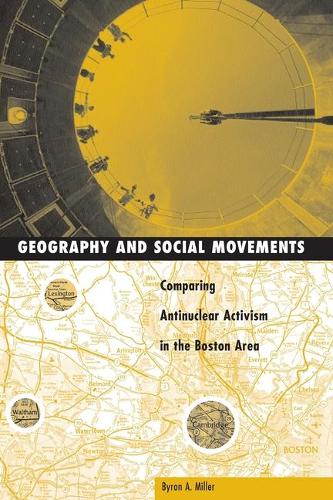
Geography And Social Movement: Comparing Antinuclear Activism in the Boston Area
(Paperback)
Publishing Details
Geography And Social Movement: Comparing Antinuclear Activism in the Boston Area
By (Author) Byron A. Miller
University of Minnesota Press
University of Minnesota Press
1st July 2000
United States
Classifications
General
Non Fiction
303.484
Physical Properties
Paperback
240
Width 149mm, Height 229mm, Spine 13mm
Description
Context matters, as students of social movements increasingly agree, and yet very little attention has been paid to the role geography plays in activism. Geography and Social Movements corrects this oversight, bringing a geographical perspective to the study of social movements. Byron A. Miller directly addresses the implications of space, place, and scale in social movement mobilization, and then demonstrates their significance in a detailed comparative analysis of peace movements in three municipalities around Boston.
In focusing on the Boston area -- an old northeastern region, heavily industrialized with many companies working on military contracts, and also a center of education -- Miller is able to explore how campaigns aimed at curbing nuclear arms operate within the cultural, political, social, and economic confines of particular places and spaces. He shows how the decisions and actions of local peace movement organizations played a central role in the movement's successes and failures, and how local organizations had to respond to the differing class, race, and gender characteristics of different locales. Miller's empirical analysis clearly demonstrates that geographic strategies for social movement organizations have direct consequences for the successes and failures of specific campaigns.
